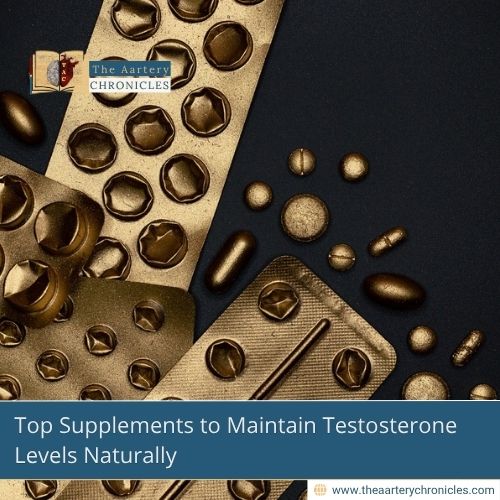

Facts and Myths About Dietary Cholesterol and Heart Health
Dietary Cholesterol: An innocent bystander
Blood cholesterol is undoubtedly a risk factor for heart disease, but what about dietary cholesterol (the amount of cholesterol consumed in the diet)?
For decades, dietary Cholesterol has been seen as a culprit for causing atherosclerotic cardiovascular disease. People have believed that dietary cholesterol contributes to an increase in blood cholesterol. But, Is this true? Let’s find out in this article.
What is the role of Cholesterol in the body? Is it important?
Yes, cholesterol is essential for our body to carry out normal functions…
Cholesterol is an integral part of cell membranes and helps synthesise vitamin D, hormones (testosterone, estrogen), and fat-dissolving bile acids. Our brain is a cholesterol-rich organ with 20% of the body’s cholesterol embedded in white matter, synapses, and membranes of brain cells. So, the brain is essentially made of cholesterol, which is needed for proper nerve cell functioning.
Is dietary cholesterol linked to blood cholesterol levels?
- Our body (Liver and intestines) synthesizes 80% of cholesterol from fats, sugars, and proteins and 20% comes from the food we eat. Dietary cholesterol is not the measure of serum cholesterol levels as the body tightly regulates the production of cholesterol. Whenever more cholesterol is consumed, the body makes less, and vice versa.
Recent studies have concluded that dietary cholesterol intake has less impact on blood cholesterol. There is a weak association between the amount of cholesterol consumed and heart disease.
How much cholesterol does the body need to be healthy?
As per new guidelines, there is no specific recommendation on limits for the consumption of cholesterol from food. However, it is also stated to replace saturated fats with unsaturated fats, to maintain healthy levels of blood cholesterol. Diets rich in saturated fats are associated with an increase in the risk of obesity, chronic diseases, and cognitive impairments/deficits.
Facts around dietary cholesterol according to the current evidence
- Current Literature supports that dietary cholesterol does not increase the risk of heart disease in healthy individuals.
- As per Harvard Health, the type of fats [saturated/trans fats] and carbohydrates [excessive sugar] in the diet are majorly responsible for blood cholesterol levels and not dietary cholesterol.
Role of cholesterol-lowering drugs/Statins
Various factors contribute to the development of heart diseases such as inflammation, oxidative stress, high blood pressure, and smoking.
 Statins/Cholesterol-lowering drugs along with lifestyle modification reduce the risk of heart attack, stroke, and death in high-risk patients.
Statins/Cholesterol-lowering drugs along with lifestyle modification reduce the risk of heart attack, stroke, and death in high-risk patients.- Statins effectively reduce the risk of cardiovascular diseases owing to their cholesterol-lowering capability. They also help lower blood pressure, stabilize plaque, and have anti-inflammatory properties.
Experts recommend the rational use of cholesterol-lowering drugs in people who have
- Higher levels of Cholesterol due to genetic Defects.
- For those with Established Cardiovascular Diseases.
Dietary sugar – A probable culprit for health issues
Our body breaks down the carbohydrates we consumed as food, to the simplest sugar that serves as fuel to provide energy. Carbohydrates are a good source of fibre and nutrients along with energy.
How much sugar does the body need to be healthy?
It is recommended to consume 130 grams of (Complex) Carbohydrates daily approximating 45 to 65% of total calorie intake. Added sugar (sugary drinks, beverages, candies) does not provide any health benefits. However, American Health Association recommends a daily intake of added sugar should not exceed 25g to 36 gms (Table 1).

Excessive sugar intake may lead to health issues such as obesity, memory loss, dental caries, diabetes, and high cholesterol/triglyceride levels.
Facts around Dietary sugar according to the current evidence
Excessive added sugar has negative effects on heart health as it;
- Can affect lipid metabolism and may produce metabolic abnormalities: A high sugar diet may make the liver synthesize more “bad” LDL (low-density lipoprotein) cholesterol, decreases good cholesterol, and increase triglycerides levels which may accelerate atherosclerosis.
- Sugar-coated LDL particles have a higher tendency to initiate the process of atherosclerosis as they tend to stay longer in the bloodstream.
- Can cause abnormally high insulin levels which may eventually culminate in Insulin resistance, which is thought to be the cause of heart disease

Conclusion
Blood cholesterol is the major determinant for health-related issues and not dietary cholesterol. Dietary cholesterol is not linked with high blood cholesterol levels in most people. However, in certain population segments, high-cholesterol foods may raise the blood cholesterol level due to their genetic makeup. Diabetics also don’t get a free pass on consuming high-cholesterol foods, they need to keep a check on consumption.
Word from Editor
It is advisable to limit saturated fats (to < 10 % of the calorie intake), trans fats (fried/processed food), and added sugars in the diet to have good health. Essential fatty acids such as omega-3 must be included as they promote mental health. Make sure that you consume all essential vitamins, minerals, and nutrients through a balanced diet coupled with an exercise regime for a healthy heart and sound mind.
Stay healthy!

Author:
Dr. Aarti Nehra
MBBS, MMST [IIT-KGP]








